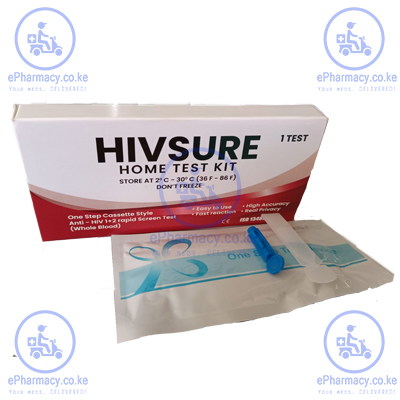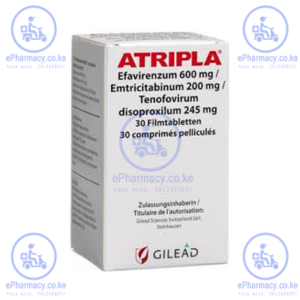Description
There are two types of Human Immunodeficiency Virus (HIV) called HIV-1 and HIV-2. If you are infected with either HIV-1 or HIV-2, your immune system will generate antibodies against either virus type. Atomo HIV Self Home Test Kit in Kenya is designed to detect these antibodies to determine if you are infected with either of the two virus types. The test can detect these antibodies in a human blood sample and the test can only be used once.
The test provides results in 15 minutes. If a positive result is detected, it must be confirmed using an alternate test performed by a health care professional, as this is a screening test only.
What is the “window period”?
It can take 6 to 12 weeks after being exposed to HIV before your body develops the antibodies that are used by this test to detect if you have HIV. This time is called the “window period”. If you take an HIV self test during the “window period” (in the first 3 months after being exposed to HIV), before your body has developed antibodies you may falsely test negative. If you believe you have been exposed to HIV, it is recommended to test again after the window period has passed and speak to a healthcare professional particularly if the negative result was not what you expected.
What happens if my test result is NEGATIVE?
First, it is important to know whether it has been over 3 months since your last risk event. If it has been over three months, and you used the test correctly, then you are likely to be HIV negative. If it has been less than 3 months since a risk event, you will need to repeat the test in 3 months. Remember this is a screening test, if you are unsure, seek advice, refer to the Care Card.
Important: Retest after 3 months.
What happens if my test result is POSITIVE?
Being HIV positive is a manageable condition and people living with HIV are now able to live long, active and healthy lives. An HIVSURE Home HIV Self Test is a screening test only, and getting a positive test result does not confirm that you have HIV.
If the test result is positive, you need to go for a follow up test at your closest health facility. The earlier a diagnosis is confirmed, the earlier you can start treatment if it is confirmed you have HIV. Refer to the Care Card included in the box or visit for more information about how to get a follow up test.
Only your doctor or a healthcare professional can perform further evaluation and recommend what treatment is right for you. If you are diagnosed by a healthcare professional as HIV positive, you will be connected to counselling services and, dependent on your condition, may be put onto antiretroviral (ARV) treatment.
What happens if my test doesn’t work?
It means that the test was not performed correctly or something went wrong. You will need to repeat the test again with a new test device.
If you are unsure whether you’ve done the test correctly, go to your local clinic or healthcare professional for assistance.
I am worried I have been exposed to HIV in the last few days, what should I do?
You should visit your local HIV clinic or Accident and Emergency (A&E) department as soon as possible, no longer than 72 hours, as you may be able to access a course of medication called “PEP” (Post-Exposure Prophylaxis) to prevent you from becoming HIV positive.




Reviews
There are no reviews yet.